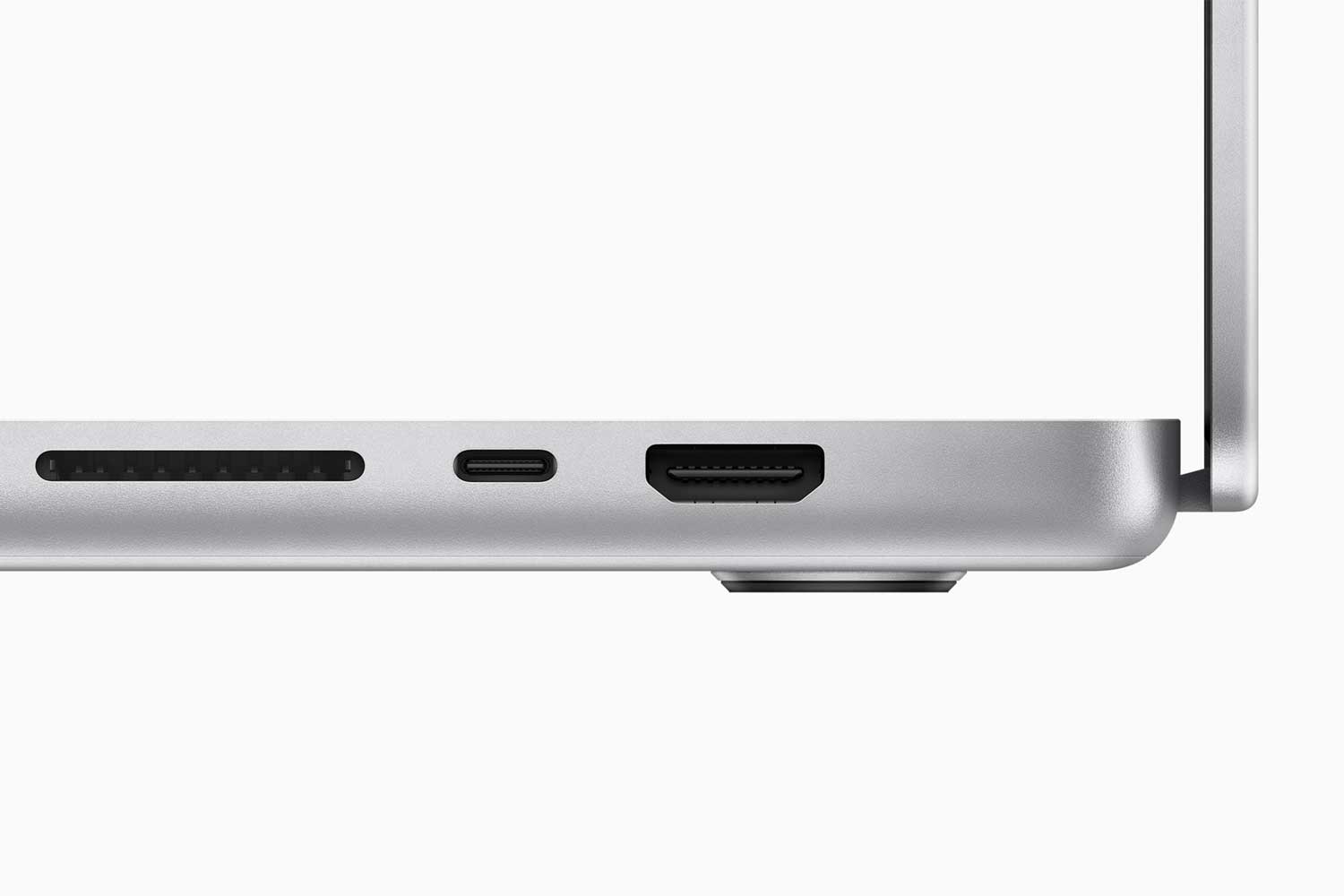
Even if you took away the global pandemic, the queues of people that would form outside Apple stores around the world – often making the national news – as fans eagerly wait to splash their cash on a new iPhone, have pretty much become a thing of the past. The Cupertino-based electronics behemoth doesn’t quite offer anything for fans to get as excited about anymore, save from a few camera upgrades and a faster processing chip.
And because new iPhone models are launched each year, people can now make an informed decision with regards to whether they upgrade or not. What is less common, however, is a new MacBook launch. Apple’s lineup of macOS-powered laptops don’t see quite the same frequent updates as the ubiquitous iPhone, so you would think that when a new one is announced, it would get much more attention.
That could well be the case with the company’s latest launch, although the reasons why are somewhat comical.
That’s because, while Apple has introduced a new MacBook Pro model, powered by either its brand new M1 Pro and M1 Max processors – upgraded versions of the company’s very own M1 chip found in the current 13-inch MacBook Pro and MacBook Air – which promise to deliver “groundbreaking processing, graphics and machine learning,” the design should be familiar to longstanding fans of the model.

It appears Apple has finally listened to customer feedback, by bringing back long requested features and getting rid of those that are just plain shite. Pro users can finally rejoice, because the SDXC card slot is back, along with an HDMI port for easy connection to external displays, and the company’s old MagSafe charging system is back too, which connects via magnetism, so if your MacBook falls or you pull it away quickly, the connector will instantly detach.
This means there’s no longer any need to connect a variety of dongles and adapters into the MacBook Pro’s USB-C inputs; something that was introduced with the fourth-generation in 2016, which was the subject of mockery online.
There are still three Thunderbolt 4 ports for fast connectivity, so all those dongles and adapters you previously purchased can still be used.
Apple has also taken the decision to omit the TouchBar along the top row of keys, replacing it with the old set of physical function keys. The TouchBar has always been a feature subject of debate, with many users not understanding the point of it. Apple’s plan was for it to be revolutionary, since the functions available the interact with on the bar change depending on which program you’re using. In practice, it just became cumbersome and – being touch-sensitive – was always going to run into technical difficulties.
The physical functions keys are now back, however, meaning you can instantly adjust the volume of whatever you’re listening to or the brightness of the screen. Keyboard brightness can only be adjusted within the Control Centre feature of the macOS software, however, but buttons are on hand allowing you to instantly turn on Do Not Disturb mode, or active Siri for voice commands.
But, perhaps the best part of Apple’s announcement, is that despite reverting back to a third-generation design from 2015, the world’s most valuable company calls this move “game changing.” Classic, classic Apple.
Yes, the new MacBook Pros might be quicker than ever, have longer-lasting batteries and have much-improved displays, all valuable features for the professional user. But giving customers the features they’ve asked for and passing those changes off as a result of a brainstorm session gone incredibly well, is kind of amusing.
The new MacBook Pro models arrive in 14-inch and 16-inch sizes, although the Liquid Retina XDR displays – which use mini-LED technology – on both are around 14.2- and 16.2-inches respectively, thanks to super-slim bezels. We won’t go into the full details with regards to how much faster the new models are compared to their predecessors – you can read the full release and specs on Apple’s website – but to be fair to Apple, the specs do make for impressive reading, and the MacBooks are sure to be the most powerful ever.
The increased performance, not to mention that “advanced connectivity,” naturally comes at a price. The 14-inch MacBook Pro pricing starts at AU$2,999/US$1,999, while the 16-inch variant starts at $3,749/$2,499. These prices are for the base versions. Apple always offers some specced-up versions too, and you’re able to customise and build your own, by increasing the amount of RAM and storage. Both are available to pre-order now.
Read Next
- Apple’s Trade In Program Good In Theory But Falls Short Where It Matters
- Why Apple’s ‘Dumbest Move Ever’ Could Also Be Their Smartest
The post Apple Performs Major Backflip With Long-Awaited New Macbook Pro appeared first on DMARGE.


0 Commentaires